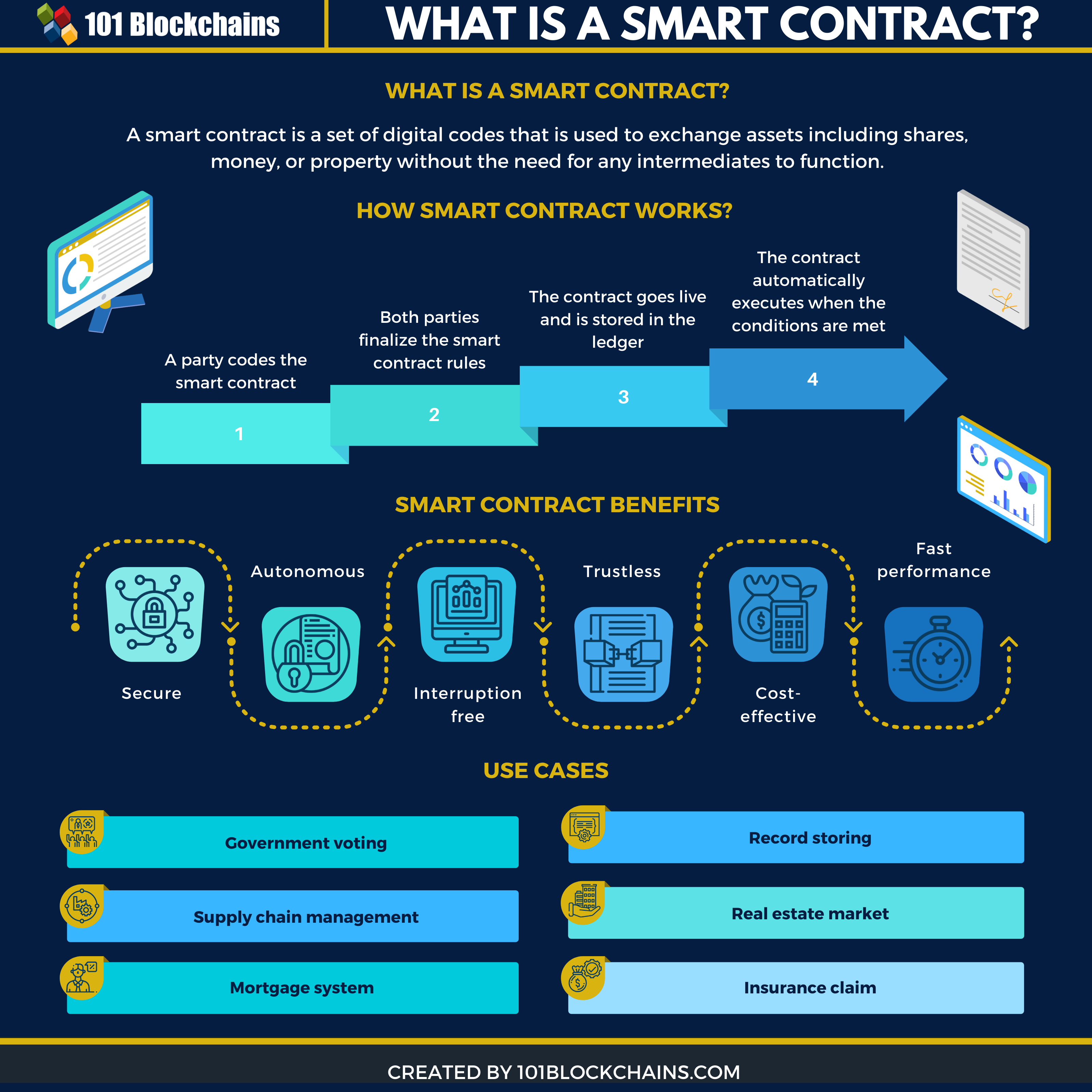What Is A Smart Contract And How Can It Be Used
In the world of digital transactions, speed and security are paramount. With the rise of blockchain technology, a revolutionary concept has emerged to streamline and safeguard our online interactions: the smart contract. But what exactly is a smart contract, and how can it be used to change the way we do business?

- The Future Of Blockchain In Financial Inclusion
- Unlocking The Power Of Flash Loans In DeFi: A Game-Changer For Crypto Investors
- The NFT Revolution: A New Frontier In Digital Ownership
- The Democratization Of Lending: How Crypto Is Revolutionizing Peer-to-Peer Finance
- Diversifying Your Digital Wealth: A Comprehensive Guide To Building A Robust Crypto Portfolio
Imagine a self-executing program, encoded with rules and regulations, that automates the enforcement of agreements. This is, in essence, what a smart contract is – a digital protocol that ensures the terms of a contract are met, without the need for intermediaries or third-party verification.
Let’s break it down further. A traditional contract is a legally binding agreement between two or more parties, outlining the terms and conditions of a transaction. However, these contracts can be prone to errors, disputes, and manipulation. Smart contracts, on the other hand, eliminate these risks by encoding the terms of the agreement into a digital program. This program is then deployed on a blockchain, a decentralized network of computers that store and verify transactions.
Here’s how it works:
- A developer creates a smart contract, using a programming language such as Solidity or Vyper.
- The contract is deployed on a blockchain, such as Ethereum or Bitcoin.
- The terms of the contract are encoded into the program, including rules, penalties, and rewards.
- When a user interacts with the smart contract, the program is triggered, and the terms of the contract are executed automatically.
- The outcome of the transaction is recorded on the blockchain, creating an immutable and transparent record.
One of the most significant advantages of smart contracts is their ability to automate complex transactions. For instance, in the insurance industry, smart contracts can be used to automate the payout process. When a policyholder files a claim, the smart contract is triggered, and the payout is automatically released, eliminating the need for manual processing and reducing the risk of errors.
Another area where smart contracts can add significant value is supply chain management. Imagine a smart contract that tracks the movement of goods, verifing the authenticity and quality of products in real-time. This can help to prevent counterfeiting, reduce the risk of contamination, and ensure that products meet regulatory standards.
But smart contracts are not just limited to commercial applications. They can also be used to create decentralized autonomous organizations (DAOs), which are essentially digital cooperatives that operate on the principles of transparency, accountability, and fairness.
For example, a group of artists could create a DAO to govern the ownership and distribution of their digital artwork. The DAO would be encoded with rules and regulations, ensuring that the artists receive fair compensation for their work, and that the ownership of the artwork is transparently recorded.
In conclusion, smart contracts have the potential to revolutionize the way we do business. By automating the enforcement of agreements, eliminating the need for intermediaries, and reducing the risk of errors, smart contracts can create a faster, more secure, and more transparent digital ecosystem. As the technology continues to evolve, we can expect to see even more innovative applications of smart contracts, from the world of finance to the world of art and beyond.
Whether you’re a business owner, a developer, or simply someone interested in the latest digital trends, it’s worth taking the time to learn more about smart contracts. The future of digital transactions is here, and it’s powered by code.
